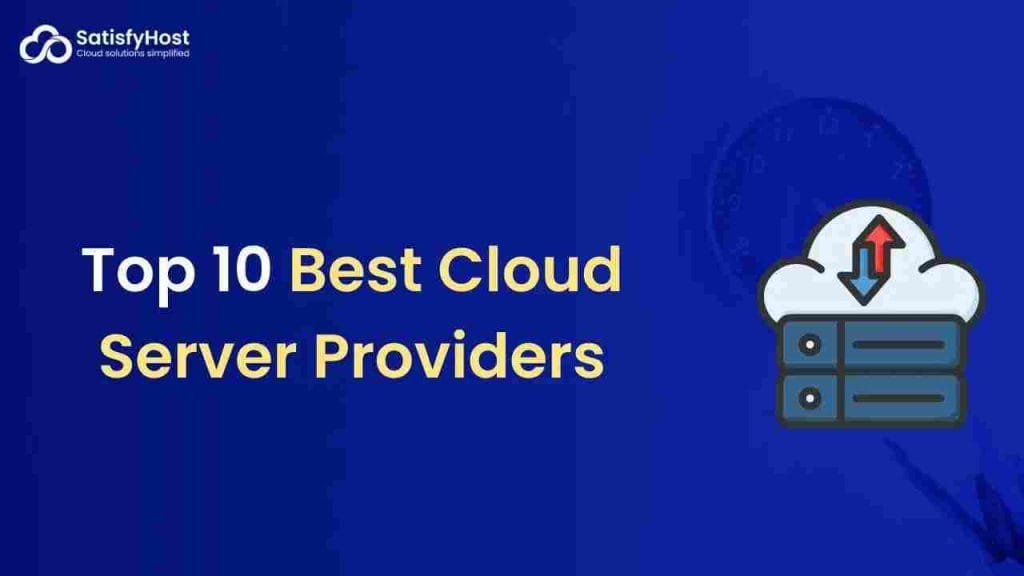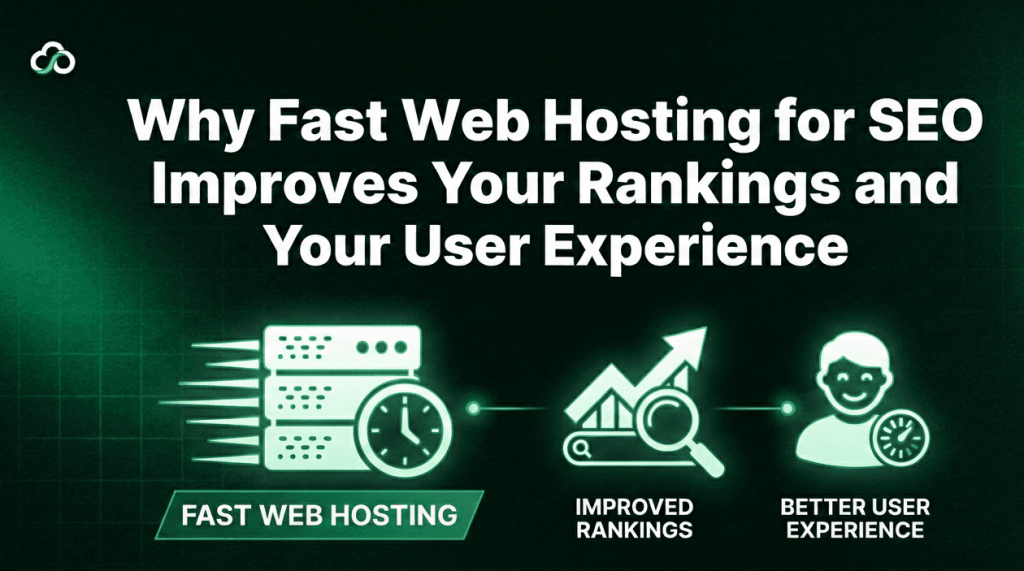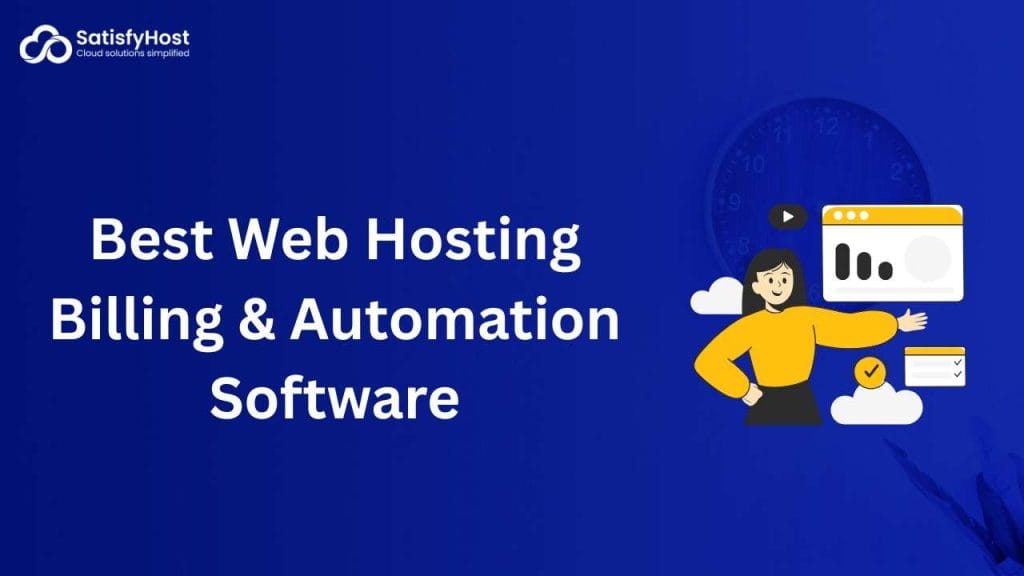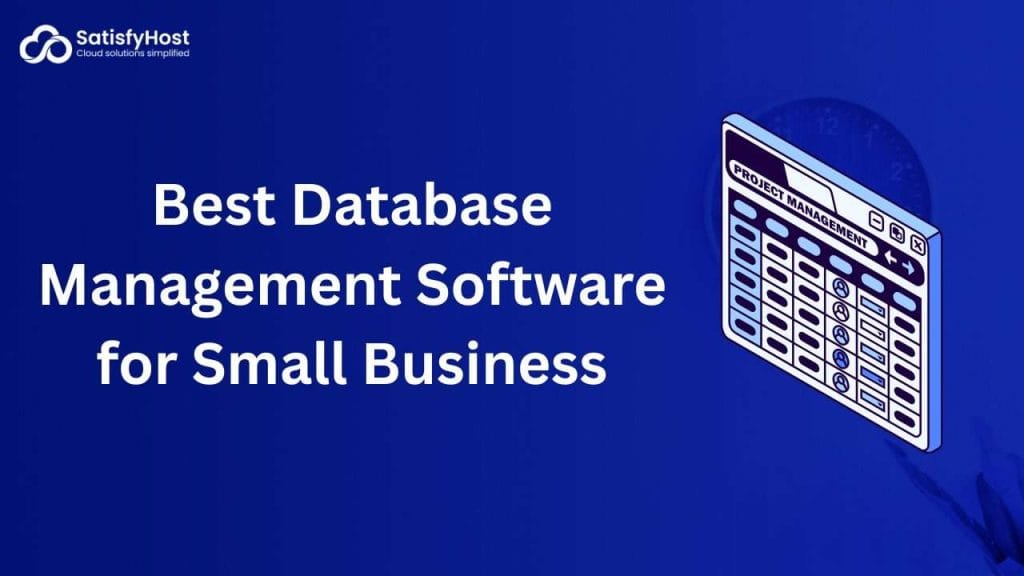In today’s digital era, top cloud server providers are revolutionizing business operations with scalable cloud computing and flexible hosting solutions. Whether you’re a startup or an enterprise, choosing the right provider from the leading cloud infrastructure providers like AWS, Azure, or Google Cloud can make or break your success. This guide breaks down the best cloud service providers 2025, their features, and how to pick the perfect one for your needs.
What to Consider When Choosing a Cloud Server Provider
Before diving into the list of the best providers, it’s important to know what to look for when selecting a cloud server. Here are the key factors to consider:
- Performance and Reliability – Uptime and speed are critical for any online service.
- Scalability – Your cloud provider should offer the flexibility to scale your resources as your business grows.
- Security – Strong security measures, including encryption and data protection, are essential.
- Support – Reliable customer support is a must for resolving issues quickly.
- Pricing – You should be able to find a provider that fits your budget while offering good value.
Now, let’s explore the top 10 cloud server providers that stand out in [year].
Table of Contents
1. Amazon Web Services (AWS)
As the industry leader in cloud computing, Amazon Web Services (AWS) continues to dominate in [year]. AWS offers an extensive range of services, from basic virtual machines to advanced AI-powered cloud solutions. The company’s network spans globally, ensuring high availability and low latency.
- Key Features: Global network, EC2 instances, machine learning, robust security
- Pricing: Pay-as-you-go, with free-tier options for new users
- Best for: Enterprises, startups, developers
- Why Choose AWS: AWS provides unparalleled scalability and flexibility, making it ideal for businesses of all sizes.

2. Microsoft Azure
Microsoft Azure is a strong competitor in the cloud services arena. With an extensive portfolio of services, including AI, IoT, and machine learning, Azure caters to a wide range of industries. Microsoft’s cloud ecosystem is particularly attractive for businesses that already use Windows and other Microsoft tools.
- Key Features: AI integration, hybrid cloud support, extensive security protocols
- Pricing: Flexible pricing plans; offers free credits for new users
- Best for: Businesses that rely on Microsoft products
- Why Choose Azure: It integrates seamlessly with Microsoft services like Office 365, making it an excellent option for businesses already in the Microsoft ecosystem.

3. Google Cloud Platform (GCP)
Google Cloud Platform has earned a reputation for its machine learning and AI capabilities. With powerful tools like BigQuery and Kubernetes, GCP is a popular choice for data-driven businesses and developers who need fast, reliable cloud infrastructure.
- Key Features: BigQuery for big data, TensorFlow for AI, Kubernetes for container management
- Pricing: Pay-per-use pricing with competitive rates
- Best for: Data scientists, AI developers, businesses focused on big data
- Why Choose GCP: Google’s cloud services are highly reliable, and its integration with cutting-edge AI tools makes it ideal for businesses that require advanced analytics.

4. IBM Cloud
IBM Cloud stands out for its emphasis on hybrid cloud solutions and AI-driven services. Businesses that need to manage both on-premises and cloud environments benefit from IBM’s hybrid capabilities. It also offers advanced AI tools through Watson, ideal for industries such as healthcare and finance.
- Key Features: Hybrid cloud, AI with Watson, blockchain services
- Pricing: Customizable based on business needs
- Best for: Enterprises needing hybrid cloud solutions
- Why Choose IBM Cloud: IBM’s strength in hybrid cloud and AI makes it a perfect fit for large organizations in sectors like healthcare, banking, and government.

5. Oracle Cloud
Oracle Cloud is known for its high performance, particularly for businesses running Oracle applications. It offers a range of services, including cloud databases and ERP systems, making it a strong choice for enterprises with significant data and transactional workloads.
- Key Features: Cloud databases, high performance, integrated with Oracle software
- Pricing: Competitive pricing with a focus on enterprise solutions
- Best for: Businesses running Oracle databases and applications
- Why Choose Oracle Cloud: Oracle Cloud provides optimized services for its software products, ensuring excellent performance and security.

6. Alibaba Cloud
Alibaba Cloud has been expanding rapidly, particularly in Asia, and has become a global player in the cloud industry. Known for its competitive pricing and strong presence in the Asia-Pacific market, Alibaba Cloud is a favorite among startups and businesses operating in this region.
- Key Features: Global network with a strong focus on Asia, AI tools, security services
- Pricing: Affordable with pay-as-you-go and subscription plans
- Best for: Startups, businesses in Asia-Pacific
- Why Choose Alibaba Cloud: If your business operates in Asia or plans to expand there, Alibaba Cloud offers excellent localized support and cost-effective solutions.

7. DigitalOcean
DigitalOcean is a popular choice for developers and small to medium-sized businesses (SMBs) due to its simplicity and ease of use. The platform offers affordable cloud solutions tailored for developers, including managed databases, Kubernetes, and block storage.
- Key Features: Simple UI, optimized for developers, managed Kubernetes
- Pricing: Affordable plans starting at $5/month
- Best for: Developers, SMBs
- Why Choose DigitalOcean: Its user-friendly interface and affordable pricing make it ideal for startups and developers who need a no-fuss cloud platform.

8. Vultr
Vultr offers cloud solutions that are both affordable and powerful. It stands out with its high-performance SSD cloud servers and a global network of data centers, providing low-latency options across various regions. Vultr is favored by businesses that need a cost-effective cloud solution without compromising performance.
- Key Features: SSD-based servers, easy-to-deploy instances, global network
- Pricing: Starts at $2.50/month for basic plans
- Best for: Budget-conscious developers and SMBs
- Why Choose Vultr: Vultr’s combination of affordability, performance, and global coverage makes it a great option for small businesses and developers.

9. Linode
Linode has built a solid reputation for its reliable, affordable cloud hosting solutions. Developers and small businesses appreciate Linode for its clear pricing structure and excellent customer support. With data centers worldwide, Linode offers reliable performance for businesses of all sizes.
- Key Features: Affordable pricing, simple deployment, reliable performance
- Pricing: Starts at $5/month
- Best for: Developers, startups, small businesses
- Why Choose Linode: Linode offers simple, affordable cloud solutions that don’t compromise on performance, making it ideal for businesses on a budget.

10. Kamatera
Kamatera is a cloud service provider that offers a wide range of flexible and scalable cloud hosting options. With 13 data centers across four continents, Kamatera ensures low-latency and high-availability solutions. Their cloud servers can be customized to meet the specific needs of any business.
- Key Features: Customizable cloud servers, global data centers, 24/7 customer support
- Pricing: Flexible, pay-as-you-go pricing
- Best for: Growing businesses looking for flexible cloud solutions
- Why Choose Kamatera: If you need cloud solutions tailored to your specific needs, Kamatera’s highly customizable options are worth considering.

AWS vs Azure vs Google Cloud: Which Should You Choose?
- AWS: The market leader, offering extensive virtual private servers (VPS) and serverless computing platforms. Ideal for complex, large-scale deployments.
- Azure: Excels in hybrid cloud solutions, seamlessly integrating with on-premises systems. Perfect for enterprises using Microsoft tools.
- GCP: Known for cost-effective cloud storage solutions and low-latency cloud servers, making it a favorite for startups leveraging AI and machine learning cloud.
Top Cloud Server Providers: A Detailed Comparison
To help you choose, we’ve compared the best cloud platforms for enterprises based on features, pricing, and use cases. Here’s a snapshot of the leading cloud infrastructure providers in [year].
| Provider | Key Features | Pricing | Best For |
|---|---|---|---|
| Amazon Web Services (AWS) | Cloud storage solutions, AI/ML tools, global cloud regions | Pay-as-you-go pricing model | Enterprises needing scalable cloud computing |
| Microsoft Azure | Hybrid cloud solutions, Kubernetes orchestration | Flexible, with free tier options | Businesses with Microsoft ecosystems |
| Google Cloud Platform (GCP) | AI and machine learning cloud, low-latency cloud servers | Competitive, usage-based | Startups and data-driven applications |
| DigitalOcean | Affordable cloud server hosting, developer-friendly UI | Starts at $5/month | Small businesses and developers |
| IBM Cloud | Cloud security compliance, multi-cloud strategies | Custom pricing | Compliance-heavy industries (e.g., finance) |
Questions & Answers
What is the most reliable cloud server provider in [year]?
- Amazon Web Services (AWS) is widely considered the most reliable due to its global network and high availability.
Which cloud provider is the best for startups?
- DigitalOcean and Vultr are popular among startups for their affordability and simplicity.
Is Google Cloud good for AI applications?
- Yes, Google Cloud Platform (GCP) is known for its powerful AI tools, including TensorFlow and BigQuery.
What’s the best cloud provider for hybrid cloud solutions?
- IBM Cloud is highly regarded for hybrid cloud solutions, especially in enterprise environments.
How does pricing work for cloud servers?
- Most cloud providers, such as AWS, Azure, and Google Cloud, offer pay-as-you-go pricing, while some also have fixed plans based on resource usage.
Can I get free cloud services?
- Yes, many providers like AWS, Azure, and GCP offer free-tier options with limited services for new users.
Which cloud server provider has the best customer support?
- Kamatera is well-known for its 24/7 customer support, ensuring that businesses can resolve issues quickly.
Are cloud servers secure?
- Leading providers like AWS, Azure, and Oracle implement advanced security measures, including encryption and multi-factor authentication, to protect data.
What is the best cloud provider for big data?
- Google Cloud Platform (GCP) excels in handling big data with tools like BigQuery.
How scalable are cloud servers?
- Cloud servers are highly scalable, with most providers offering the ability to adjust resources based on your needs in real-time.
Related article – What is Cloud Hosting and Is It Right for Your Business?
Selecting the best cloud server provider in [year] depends on your specific business needs, budget, and technical requirements. Whether you need a robust solution like AWS or Azure, or a more cost-effective platform like DigitalOcean or Vultr, each provider has its strengths. Carefully consider factors like scalability, security, and customer support when making your choice to ensure long-term success for your cloud infrastructure.









